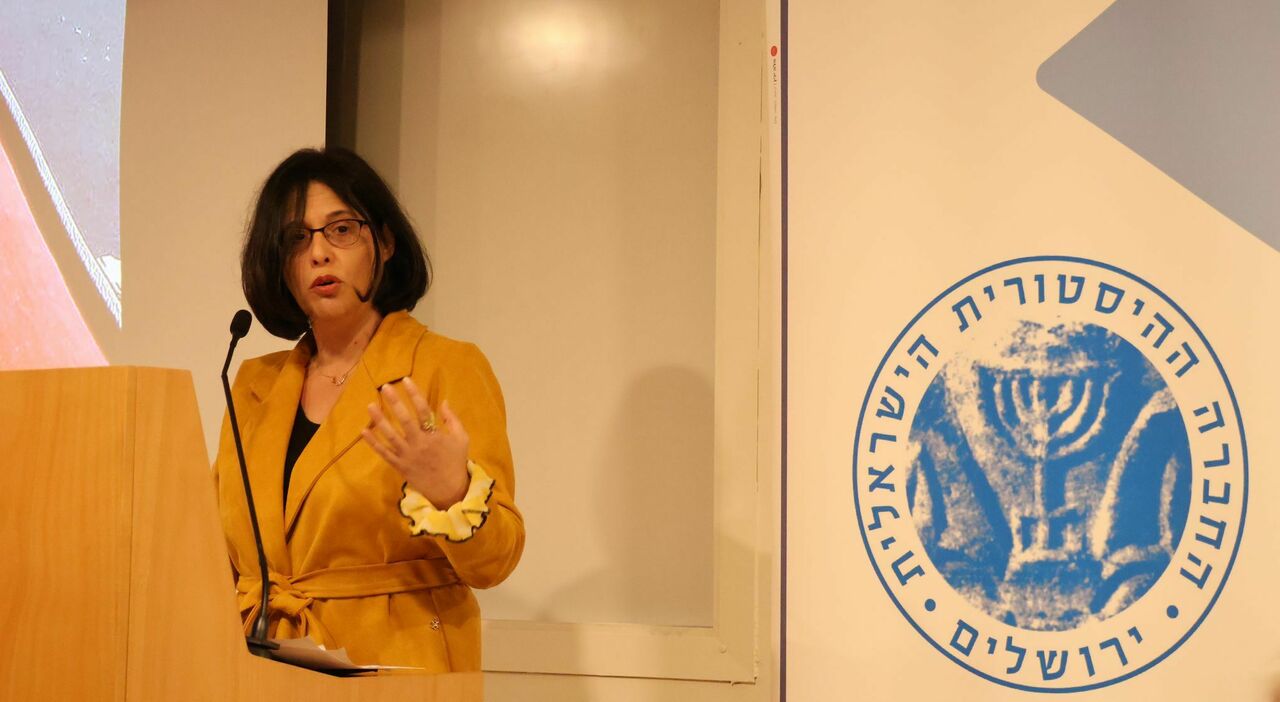Saturday 16 March 2024, 12:42 - Last updated: 19:00
"The Netanyahu government should go, this era must end. That's why there are protests. I think we are at the most terrible point in our country's history," says Tamar Herzig, one of the most authoritative and well-known Israeli historians. She teaches modern history at Tel Aviv University, has written books translated worldwide about the European Renaissance, and never imagined she would have to talk about the present. "I have always dedicated myself to the past, dealing also with sexual violence that occurred in past centuries. I certainly never thought I would have to make reflections on the most pressing current affairs."
A terrible situation...
"For young people, the situation is very heavy. I see a generation that can no longer think about the future. They are in a difficult psychological state. The universities have emptied, many young people were killed on October 7, others are at the front. The academic year could not begin in October, and we only started the semester in December. Just look at the students in class: the joy of life that should be on any campus is missing. Their lives have been turned upside down."
It's just past March 8: as a feminist, how have you experienced the silence of much of the female world in front of the systematic rapes by Hamas at the Nova festival and in the kibbutz?
"UN envoy Pramila Patten confirmed in a long report of 23 pages at the beginning of March the sexual violence that occurred. Violence that is still happening to the 19 women held hostage in Gaza. The report explicitly writes, and they might even be pregnant. The Italian feminists who made March 8 a pro-Palestinian demonstration instead of being in solidarity with the Israeli women, I think, is something painful that should make us reflect. A terrifying silence. If feminists don't want to see what has happened and is happening to Israeli women, it's the beginning of a way of thinking that ruins what the history of feminism has done in the last decades. We are talking about rapes, not harassment. The terrorists also caused mutilations to the bodies. Horrible things. Pramila Patten herself declared she had never seen anything like it."
Do you think this attitude on the part of feminists is due to latent anti-Semitism?
"Women were a particular target of the massacre. The terrorists' own footage tells us this. You hear voices shouting: don't kill this girl, let's take her. Kidnappings were part of the plan. For us, it was a shock to discover rampant anti-Semitism. As far as I'm concerned, I considered it a relic of a European past, but it is not so. If a Jewish woman tries to say something about October 7, she is driven away from the March 8 demonstration in Florence."
What do you hope for in the short term?
"The word peace is beautiful, but it is difficult to make peace: with whom should we make it? I believe the international community must intervene to ensure a reliable partner. I believe in a two-state solution. I also hope for another government, more liberal, inclusive of values that are also better for women. No one obviously has a magic solution, it is also important that the 200,000 Israeli refugees can return to their homes made unsafe by rockets, both in the North and in the South. The war at the beginning was necessary, every state has the right to defend itself. What happens in Gaza with children and women is, however, terrible. Yes, I dream of the end of the war."
The USA threatens to no longer send aid to Israel if it attacks Rafah, what do you think?
"They have been repeating this for weeks and will continue to do so. I am neither a political scientist nor a prophetess, however, I think it is a way to exert pressure on the government to seek a non-military solution. Something that is not simple since there is no partner, no interlocutor on the Palestinian side with whom to dialogue. A military solution is not an absolute. We must begin to design the 'day after,' and I hope that this moment can come soon."
A truce is hypothesized, perhaps something is moving?
"Hard to say. Today, for example, I taught my students. It was the last lesson of the semester. I know boys who have been called up as reservists for May, June, and July. It does not seem, therefore, that all this is about to end."
© ALL RIGHTS RESERVED
This article is automatically translated
